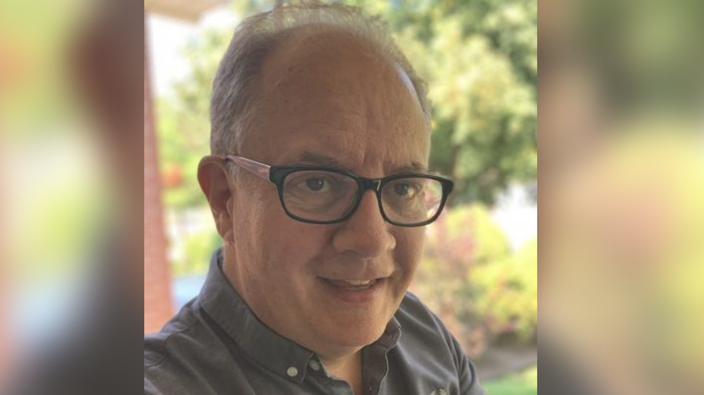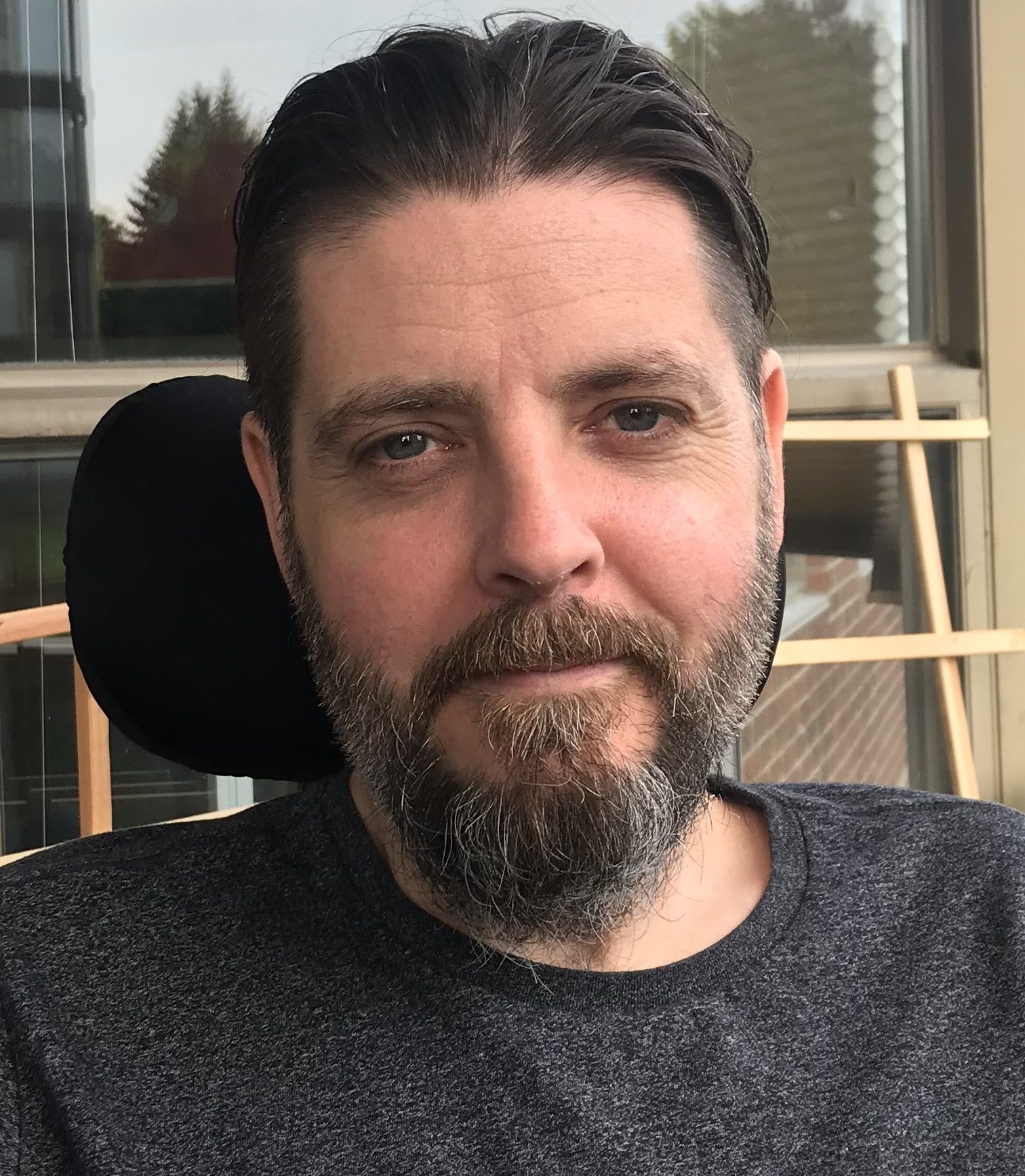the only control you have, really, is to try and understand it better. there are many support groups that are specific to the kind of lung cancer that i have. lung cancer canada is one resource — i’ve participated in some web information sessions just trying to learn as much as i can.
what was it like to be in hospital during a pandemic?
i ended up in the hospital for just over two weeks. it was difficult. my family couldn’t visit, although my wife was able to see me the morning of my surgery for about half an hour. my kids came to the parking lot outside my window with signs and stuff so i could wave to them.
in this era, we’re aided by technology, so there are video calls, but it’s lonely. even though the nursing and medical staff were fantastic and very supportive, it wasn’t the same as having somebody sitting beside you who is family. that was tough for sure.
people often think lung cancer is only caused by cigarette smoking, but you don’t smoke.
it’s naturally one of the first questions that i get. people who know me say, “but you don’t smoke,” and then i have to explain that i have a non-smoking kind of lung cancer.
lung cancer has a a bit of a stigma around it because of this association with smoking. there’s this whole, ‘you did it to yourself’ sort of mentality. one of the biggest challenges is to educate and to get people to understand the different causes of lung cancer beyond smoking. fundraising is also difficult because of that stigma.
 6 minute read
6 minute read








